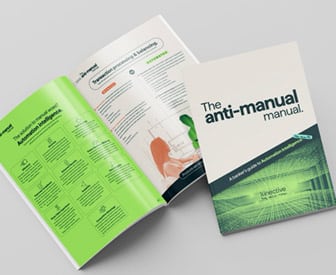In 2005, George W. Bush was President and the BlackBerry was the cool handheld. The iPhone would not debut until 2007. The financial crisis was still on the horizon, and the Dodd-Frank Act wouldn’t hit banking for another five years.
Also this: 2005 was the year that a group of merchants and associations sued Visa, Mastercard and six major banks and related payments affiliates in a federal antitrust case called “In Re Payment Card Interchange Fee and Merchant Discount Antitrust Litigation.” Stripped to its essence, the case hinges on merchants’ complaints that interchange fees have long been too high.
In late March — 19 years and many legal twists and turns later — the parties announced a settlement of the long-running dispute that awaits final approval by the U.S. District Court for the Eastern District of New York.
Views on the settlement vary, and the settlement terms will play out over years.

Banking Transformed Podcast with Jim Marous
Listen to the brightest minds in the banking and business world and get ready to embrace change, take risks and disrupt yourself and your organization.

The Power of Localized Marketing in Financial Services
Learn how to enhance your brand’s local visibility, generate more leads, and attract more customers, all while adhering to industry regulations and compliance.
Read More about The Power of Localized Marketing in Financial Services
Get Ready for a Payments Endurance Race
“We are so far from the finish line that we can’t declare a winner,” says Grace Broadbent, senior analyst, payments, at Emarketer. She adds that the settlement won’t end the animosity between retailers and the two networks and the issuers. Even some merchant associations don’t like the deal. The National Retail Federation says the deal “amounts to pennies on the dollar.” The Merchants Payments Coalition is still pressing for federal legislation in part because it feels the settlement offers no help for Main Street retailers.
Some payment experts are also underwhelmed, but others say major changes to the competitive picture will come in its wake.
In detailed commentary filed with the court, Columbia University professor Joseph Stiglitz, an analyst brought in by plaintiffs, hailed the deal as benefiting merchants and avoiding yet more litigation.
“The Settlement Agreement opens competitive doors that have been closed for decades, while providing rate relief to every merchant that accepts Visa or Mastercard credit cards.”
— Joseph Stiglitz, Columbia University
A major change would be the removal of restrictions on “tender steering” under Mastercard and Visa rules, according to Peter Davey, a payments expert who is now a venture partner for payments and identity at the Alloy Labs Alliance. (“Tender” in this context means payment of money to meet an obligation.)
“Tender steering” is the merchant practice of nudging consumers towards one payment type over another preferred by the merchant — typically in favor of the one that costs the least to receive. This may be done through disincentives, such as surcharging purchases made with a more expensive (to the merchant) payments method. Or it may be attempted through incentives, such as offering a discount for using the merchant’s preferred method.
“The settlement will put tender steering on steroids!” says Richard Crone, payments consultant.
Some think that the costs of the settlement’s terms will cause card issuers to have to scale back rewards programs. Others forecast an arms race, especially in the premium card category.
Read more: Credit Cards Fuel Big Banks’ Loan Growth Amid ‘Normalization’
Capital One/Discover Deal’s Intriguing Timing
The deal could also stimulate action in Congress on the Credit Card Competition Act.
That proposed legislation, introduced by Sen. Dick Durbin, father of the “Durbin Amendment” that introduced differential debit card interchange fees based on issuer size, would (among other things) require credit card issuers to provide consumers two options for credit card transactions. Only one could be Mastercard or Visa.
That would benefit Capital One (a party to the settlement), if it ultimately acquires Discover after it navigates the remaining political and regulatory obstacles. That’s because Discover is not only a card, but also its own payment network. Capital One/Discover would have access to Mastercard, Visa and the Discover networks.
“Capital One would get to play on both sides of the fence,” says Crone.
Let’s examine the economics of the proposed settlement; the impact of unfettered tender steering; and the potential effects of the settlement on credit card rewards and its possible role in stimulating merchant-side incentives.
Read more: Should Banks Beware Credit Score ‘Grade Inflation’?

The How, What and Why of the Proposed Payments Settlement
The proposed terms of the class-action antitrust case are, in summary:
• Three different “brakes” will be applied to “swipe fees.” For at least three years, Mastercard and Visa will reduce posted swipe fees for every merchant by at least four basis points. For five years, the companies won’t hike swipe fees above posted rates extant as of yearend 2023. For five years, the average swipe fee systemwide must be at least seven basis points below the current average rate.
Peter Davey suggests that because many smaller merchants process through companies like Square and Stripe that charge them a “blended interchange rate,” many will likely feel little effect from the settlement’s brakes.
• Restrictions on merchant tender steering would be lifted. First, merchants could charge consumers for using a Visa or Mastercard credit card. (An existing restrictive connection to American Express’ own rules would go away.) Second, they would be able to discount down to the issuer level, to favor specific cards. Third, they could adjust prices of goods and services based on the costs associated with accepting various cards. Analysts point out that this is not only a strategic advantage, but gives merchants more bargaining power because they can act independently.
• Small merchants will gain a potentially helpful option. By their sheer size, major retailers can negotiate savings on payments costs — sometimes substantial savings. The settlement encourages smaller merchants to size up by banding together for collective negotiation and buying of card services from Visa and Mastercard issuers.
Crone notes that this recognizes, in part, how many smaller merchants have their payments processed through “payfacs” — payment facilitators that essentially are collective entities. These providers include PayPal, considered the world’s largest payfac.
A question is whether merchants will pass any of these reductions along to consumers in the form of lower prices. History doesn’t favor that possibility.
The Durbin Amendment to the Dodd-Frank Act set up two tiers for debit card interchange, one maximum rate for institutions over $10 billion in assets and a higher one for institutions below that threshold. Andrew Davidson, senior vice president and chief insights officer at Comperemedia, a Mintel company, says historically consumers received no passalong from retailers who saved when dealing with larger banks.
Read more from our payments coverage:
- How and Why Navy Federal Got Aboard Instant Payments
- PayPal’s Dan Schulman on the Future of Banking: Digital, Seamless and Consolidated
- Consumers Have Embraced Digital Wallets. But They Also Want Them to Be Better

Why Industry Cloud for Banking?
PwC’s Industry Cloud for Banking helps deliver personalized products and services that today’s customers expect.

Creating A Community with CQRC’s Branch Redesign
Find out how SLD helped CQRC Bank to create the perfect harmony of financial services, local culture, and the human touch in their branch transformation.
Read More about Creating A Community with CQRC’s Branch Redesign
Parsing the Numbers and the Significance of the Settlement
All told, the law firms representing the merchant class project that sellers will gain $29.79 billion in savings in the years of the settlement’s adjustments to interchange pricing, outlined above.
Richard Crone sees the deal as a win for all sides, in what he says will be a long-term game.
How so? In the fourth quarter of 2023, credit card debt rose by $50 billion to a total of $1.13 trillion in outstandings, according to Federal Reserve figures.
Crone believes the settlement will provide another period — perhaps as long as a decade — for the basic “heritage economics” for Visa, Mastercard and its issuers. Going by his calculations, the four-basis point concession to merchants in the settlement will result in only a 2% reduction in average interchange income for three years.
“That’s nothing,” says Crone. He also sees the seven-basis point “brake” as being at most a small change. “A five-year cap on fees, given the 74-year history of cards, is a mere drop in the bucket in the lifecycle of the industry,” says Crone.
Crone believes that the real centerpiece of the deal is the tender steering section. “The concessionary savings in the settlement are dwarfed by the huge potential benefits merchants and payfacs like PayPal can derive for themselves by aggressively implementing unfettered tender steering, incenting customers to use lower-cost tenders, a key benefit of the settlement for merchants,” says Crone.
Going by the best estimates of Crone’s firm, here’s a comparison, using PayPal as an example: A four-basis-point concession on PayPal’s credit card total payment value will save around $202 million in interchange fees annually. On the other hand, being able to push payments volume towards the least costly route via tender steering would save PayPal and its merchants much more. Crone estimates that being able to shift just 1% of volume from the highest-cost provider to the lowest-cost provider would save between $1.8-$3.03 billion annually.
In his written analysis, Joseph Stiglitz sees the ability to tender steer as being a major lever for retailers, and the amounts involved “substantially greater” than the concessions. Being able to surcharge consumers who use cards that cost merchants more to accept will send a message. Up until now, the matter has been opaque to consumers.
“It is likely to take some time for customers to recognize that discounting for use of low-cost cards or charging for use of high-cost cards is fair, equitable, and competitive,” Stiglitz wrote. “The Settlement Agreement recognizes this inertia by including meaningful restrictions on Visa and Mastercard credit-card interchange fees.”
Peter Davey points out that what’s often forgotten is that interchange income isn’t all gravy. Merchants who accept credit cards are potentially obtaining sales beyond what they would have absent those card-based purchases. Meanwhile, issuers absorb the cost of fraud. Davey points out that not only is third-party fraud growing, but also first-party fraud. He says that there are websites that provide detailed instructions on how to defraud one’s own bank after making purchases with the institution’s card.
Read more: Shocker: Amex, Chase and Citi Top BNPL Satisfaction Rankings

Looking at Credit Card Rewards in the Wake of the Settlement
After a period of adjustment, will consumers who love the rewards program of their card of choice simply grin and bear it as they get surcharged, as Stiglitz seems to suggest?
“Credit card rewards loyalists don’t want to be told that they have to pay extra to use their preferred cards.”
— Grace Broadbent, Emarketer
But merchants didn’t cotton to subsidizing, in their eyes, issuers’ juicy rewards programs beforehand. It’s hard to imagine them not using the tools for tender steering — surcharges and discounts — that an approved settlement will give them.
Crone thinks the diehard fans will have a threshold for pain, to an extent.
“‘Points mongers’ will go to great lengths to earn their points, even so far as paying a percentage fee to pay their taxes and utilities bills with their favorite card,” says Crone.
On the other hand, Davey says any fears that ultra-premium programs will devalue their offerings in the wake of the interchange fee concessions will probably not be vindicated. He thinks the major players that offer such rewards programs already charge hefty membership fees and that they’ll merely hike the fees. Most consumers who could afford the original fees will acquiesce rather than give up on all the perks they enjoy.
But the state of rewards in the wake of the settlement won’t just settle there, experts believe.
Read more: Lifetime Value vs. Share of Wallet: Which is the Right Metric for Customer Retention?

The New AI: A Banker’s Guide to Automation Intelligence
Manual tasks across channels is costly. And while AI is hot, there’s a simpler way to bring efficiency that many bankers have overlooked.
Read More about The New AI: A Banker’s Guide to Automation Intelligence

The Financial Brand Forum Kicks Off May 20th
Explore the big ideas, new innovations and latest trends reshaping banking at The Financial Brand Forum. Will you be there? Don't get left behind.
Read More about The Financial Brand Forum Kicks Off May 20th
Battle of the Rewards Programs: Who Will Get the Loyalty?
Credit card rewards have become such a fixture that fintechs are attempting to enhance their own debit offerings with rewards of some kind . It’s hard to recall that not so long ago, rewards were unheard of. A study by The Ascent, a Motley Fool affiliate, found that 56% of U.S. adults have at least one credit card that pays cash back.
Merchants will be walking a fine line, Crone suggests. On one hand, they waited nearly two decades for a settlement that would change some of the math of interchange. However, they are ultimately in the business of moving merchandise.
“No merchant and no payfac will add so much tender steering friction to the process that it will prevent making a sale,” says Crone.
Banks' Experience Will Help:
There's a learning curve to everything. Banks have had a good deal more experience using incentives in the payment context. By comparison, most merchants and payfacs will be in early innings when they begin trying to tender steer.
“Sophisticated ‘tender steering’ is a very precise science. Few besides PayPal, Amazon, Apple, Target, Walmart and Starbucks have perfected the art,” says Crone. “It will take all others to implement effective tender steering, which buys financial institutions time to upgrade their rewards programs in order to effectively compete, especially against surcharges.”
What may shape up is a war of two fronts. One will consist of discounts and other incentives that merchants will offer in order to steer consumers to payments that cost the retailers less to accept.
The other front will be bank and credit union issuers that will fight for volume on their cards. “The card market is so competitive that I don’t see the settlement having an impact on rewards,” says Comperemedia’s Davidson.
Smaller players on both sides — card issuers and merchants — will have to dig deeper or get more creative to take part in this war.







